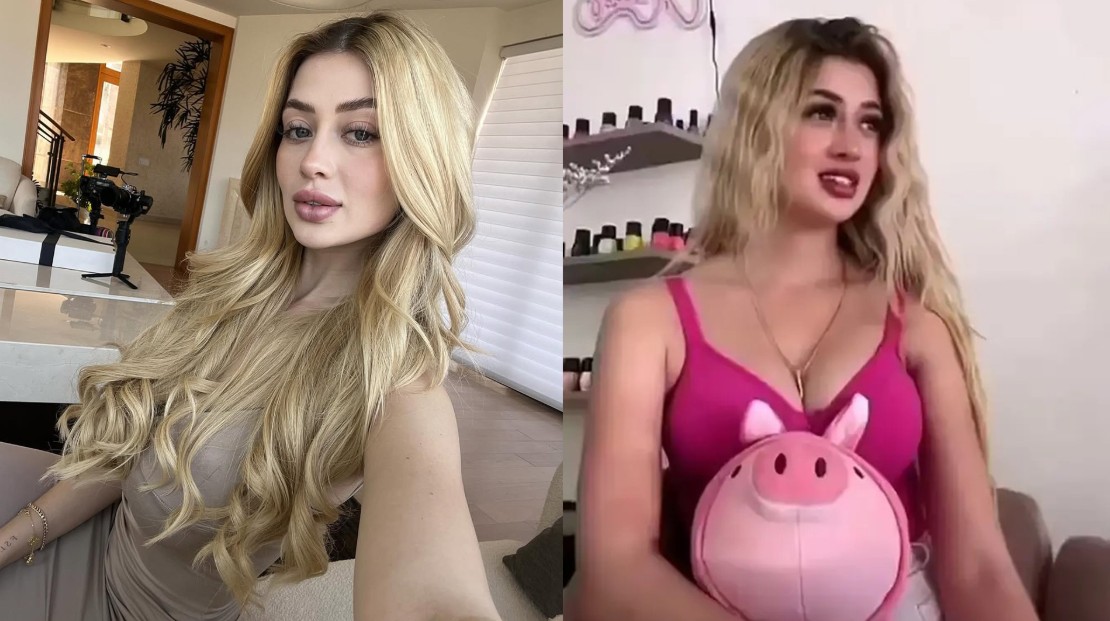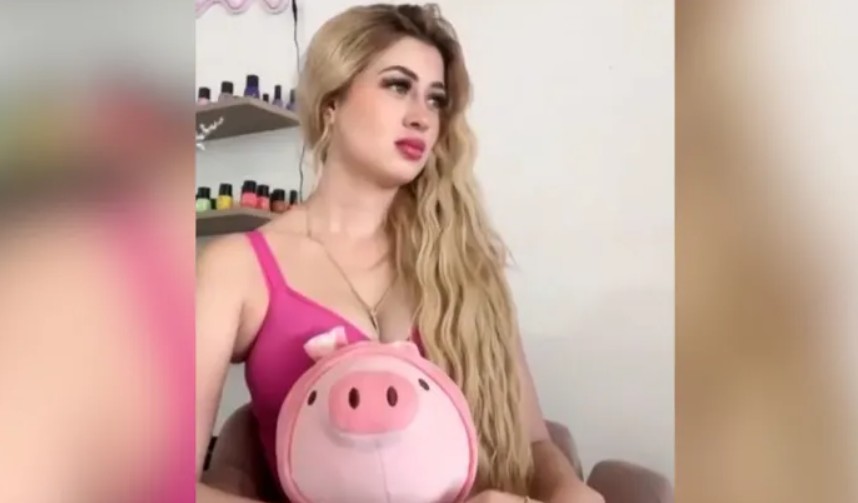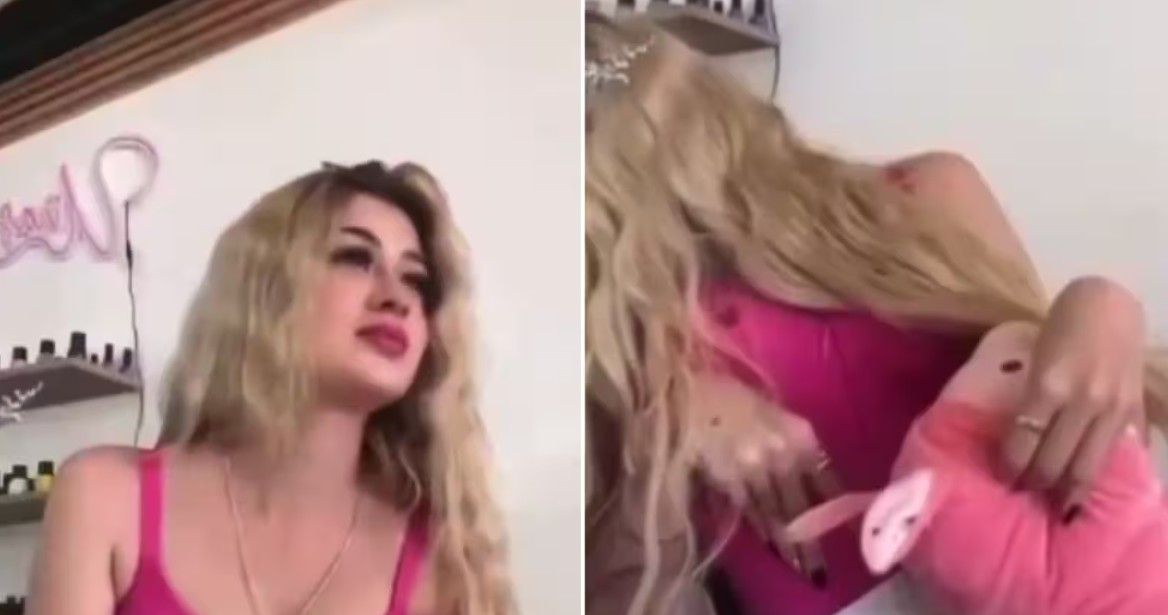Valeria Marquez Shooting Video at Zapopan Sparks
The social media world was shaken when news emerged that Valeria Marquez, a 23-year-old Mexican influencer, was fatally shot while livestreaming on TikTok. The horrifying incident occurred at her beauty salon in Guadalajara and was partially captured on video before the stream abruptly ended. Marquez’s death has sparked grief and outrage across Mexico and internationally, drawing renewed attention to the country’s ongoing crisis of gender-based violence.

Contents
A Public Killing Caught on Video
On an ordinary day in Zapopan, a suburb of Guadalajara, Valeria Marquez was inside her beauty salon interacting with fans on TikTok. Known for her beauty tutorials, lifestyle content, and cheerful personality, she held a stuffed animal while speaking to her followers. Moments later, a man entered the salon, apparently carrying a gift.
Valeria Marquez Shooting Video: Shocking Live Footage Captures Tragedy
According to local media, he approached Marquez under the pretense of delivering a present. Instead, he pulled out a firearm and shot her at close range. The act unfolded live on her social media, with the video continuing until a bystander intervened and ended the stream.
Emergency services arrived around 6:30 PM local time, but Marquez was declared dead at the scene. The Jalisco state prosecutor’s office later confirmed her identity and death in an official statement.
Investigated as a Femicide
The motive behind the killing remains unknown. However, the Jalisco state prosecutor has classified the case as a femicide a killing of a woman due to her gender under Mexican law. This designation carries heightened legal significance and highlights the systemic misogyny underlying violent crimes against women.
Forensic teams are investigating the scene and collecting evidence. As of the latest updates, no suspects have been identified or arrested. Authorities are reviewing surveillance footage and collecting testimonies to reconstruct the events leading to Marquez’s murder.
Gender-Based Violence in Mexico: A Grim Reality
Valeria Marquez’s death is part of a broader pattern of violence. Gender-based violence in Mexico remains widespread, with the United Nations reporting an average of 10 women and girls murdered daily, often by partners, ex-partners, or family members. Many of these cases remain unresolved, and a culture of impunity frequently shields perpetrators.

Femicides in Mexico often occur publicly, reflecting deep societal issues. Some victims had previously reported threats or harassment, only to have their concerns ignored. In Marquez’s case, Zapopan’s mayor, Juan José Frangie, confirmed there were no records of her requesting protection or reporting threats. He condemned the crime, calling femicide “the worst thing” and pledging a thorough investigation.
A Life Cut Short in Front of an Audience
Valeria Marquez had built a growing online following, with nearly 200,000 followers across TikTok and Instagram. She was admired for her bright personality, beauty tutorials, and authentic glimpses into daily life. Her online presence brought joy to many, making the circumstances of her death even more tragic.
The livestreamed nature of her killing traumatized her community. Fans witnessed the violence in real-time, leaving many struggling to process what they saw. Social media quickly filled with tributes, demands for justice, and outrage over her death.
“Rest in peace, Valeria. You didn’t deserve this,” one follower wrote. Another said, “I still can’t believe I saw it happen live. I wish I hadn’t.”
The Dangers of Online Fame
Marquez’s killing underscores the vulnerability of influencers and public figures, particularly women, who share large parts of their lives online. While social media can provide opportunity and visibility, it also exposes creators to risks including harassment, stalking, and in extreme cases, physical violence.

In countries like Mexico, where gender-based violence is pervasive, female influencers may face additional dangers. Public visibility can attract both fans and malicious actors who exploit the openness of digital platforms. A livestream intended to connect with followers instead became a chilling record of a crime.
This tragedy has reignited discussions on influencer safety and the need for stronger protections online and offline. Experts emphasize that law enforcement must respond more proactively to threats against content creators, while social media platforms must improve detection and prevention measures to protect users from harm.
A Nation in Mourning
Across Mexico, the death of Valeria Marquez has become emblematic of a wider crisis. Activists, women’s rights organizations, and community leaders have condemned the attack, demanding justice not only for Marquez but for all victims of femicide.
Vigils have been held in her memory, while hashtags such as #JusticiaParaValeria and #NiUnaMenos (“Not One Less”) have trended on social media. These digital movements aim to pressure authorities into action and ensure that victims are not forgotten.
“The death of Valeria Marquez highlights the urgent need to protect women,” said a local advocacy group. “We demand accountability, justice, and an end to this violence.”
Mayor Juan José Frangie reaffirmed the government’s commitment to a thorough investigation, pledging that every effort will be made to identify and prosecute the perpetrator.
Looking Ahead: Justice and Reform
Valeria Marquez’s tragic death serves as a stark reminder of the dangers women face simply by existing in public life. As her family, friends, and followers grieve, critical questions arise about society’s failure to protect its most vulnerable members.
Experts and advocates emphasize that addressing femicide in Mexico requires systemic reform: stronger legal protections, faster law enforcement responses, increased support for victims, and a cultural shift that rejects misogyny and violence.
Meanwhile, Valeria Marquez’s memory endures in the hearts of her supporters and in the digital legacy she left behind. Her smile, once shared with the world, now serves as a haunting reminder of the urgent need for justice and meaningful change.
Breaking News -Eugenia Cooney Collapse Video Sparks Debate on Safety
Stefon Diggs Video and the Triggers Debate
Glenn Greenwald Video Fuels Debate on His Actions
Tijana Radonjic Parasailing Fall Full Video Footage
Kaitlyn Flynn Oilers Original Video Leads to Bold Call
Scott Rogers Video Stirs Discussion on Digital Ethics
MSDami Video Sparks Debate on the Dark Side of Virality
